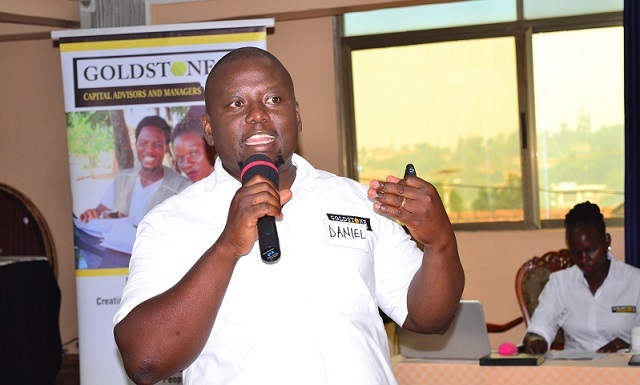
Kampala, Uganda | THE INDEPENDENT | The Uhuru Institute for Social Transformation is leading a move to revolutionise the management of co-operatives in the country and help them match the current business demands.
When the Cooperative movement collapsed in the 1980s and was inactive for almost two decades following, there were many changes in the business world, including consumer preferences, technology, globalisation and many other changes.
However, efforts by the government to revive the sector are deemed not to have considered this, yet the Cooperatives that were revived and the new ones formed, took on different forms in line with the prevailing situation, unlike previously when the movement was largely Agricultural based.
This has seen many of them collapse just after being formed.
The challenges mainly include financial mismanagement, human capital inadequacies, and climate change effects, among others.
It is for this reason that the Uhuru Institute launched a study and came up with the idea of an innovation competition to prompt Cooperatives to be more innovative, with management products relevant to their sustainability.
Daniel Bukenya Yiga, the Managing Director of Goldstone Enterprise Consulting and Training Ltd has led his company across the country in partnership with the Uhuru Institute to understand why most cooperatives were not doing as well as expected.
He said it was then that they saw the need to empower the cooperatives to be more innovative which would make them more sustainable.
This was at the climax of the pitching session for innovations in Kampala, with others having been completed in different regions of the country.
Bukenya also explained that the countrywide study revealed to them how different the regions were and how dynamic their challenges were, which informed them of the approaches to take. He, however, said that some of the challenges were similar.
Jane Akello Amuge, the Operations Director at Uhuru Institute, said that as much as a lot of energy has been put into the country’s innovation terrain, there is not much to show for it, especially in cooperatives.
She said most of the government programs aimed at developing the grassroots also lack the innovation push which will jumpstart the progress that they are intended for.
The innovations by the various Cooperatives will be awarded next week, and it is expected that the winning ones will be scaled up or rolled out to other regions or Cooperatives, in a bid to have the whole sector managed sustainably.
The Coop360° Network Innovations Award identifies, documents, evaluates, amplifies, and rewards cooperatives that have improvised and adapted solutions that will enhance membership value, stabilise and leapfrog their businesses and communities towards competitiveness and sustainable resilience under the theme Cultivate, Invent, Impact.
One of the innovations pitched by Kampala Region was a tool by Uganda Central Co-operative Finance Services Ltd (UCCFS) that aims at digitising cooperatives and monitoring their performance to ensure they are protected from declining and collapsing.
Humphrey Walusimbi, the IT specialist at UCCFS, said that they added the capacity–building function to their financial services because they realized financing was not the main challenge as cooperatives were collapsing.
Another innovation was a farm-management tool developed by Kibinge Coffee Farmer Cooperative Society in Greater Masaka, aimed at managing coffee plantations for members who may be having challenges.
The General Manager, Rogers Serubombwe says they realized that their area and membership had many people interested in coffee growing but did not have either the technical know-how or the financial abilities to manage the farm, hence the innovation.
The overall category winners will get 20 million shillings, a tourist weekend for 15 persons in support of promoting local tourism in Uganda and a three-month mentorship and coaching session.
The first runners-up are expected to get 10 million shillings, ICT appliances like computers, printers, and routers, valued at 5 million shillings and a three-month mentorship session.
The third best innovations will win mentorship and coaching for 3 months.
******
URN
 The Independent Uganda: You get the Truth we Pay the Price
The Independent Uganda: You get the Truth we Pay the Price





